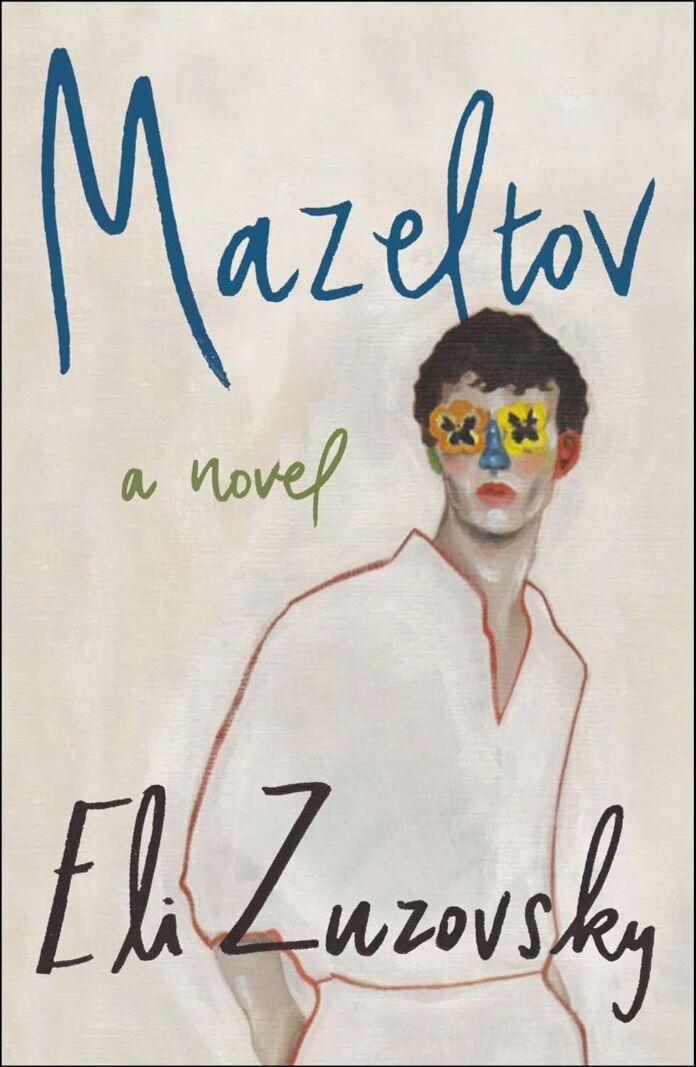In his ambitious debut novel, Mazeltov, Eli Zuzovsky crafts a kaleidoscopic narrative centered around a bar mitzvah party that serves as both celebration and catastrophe. Through multiple perspectives and timelines, Mazeltov explores the complexities of growing up queer in Israel, familial expectations, and the weight of cultural identity. While the novel showcases Zuzovsky’s remarkable talent for character development and lyrical prose, it occasionally stumbles under the weight of its own ambitions.
Literary Merit and Style
Narrative Structure
The novel is divided into three sections—Separation, Threshold, and Incorporation—mirroring anthropologist Arnold van Gennep’s framework for rites of passage. This structure proves both innovative and challenging, as Zuzovsky weaves together multiple narrative threads that span different time periods and perspectives. The result is a rich tapestry that, while occasionally disorienting, effectively captures the fragmentary nature of memory and identity formation.
Voice and Language
Zuzovsky’s prose shines brightest in its poetic moments, particularly in chapters like “The Day My Childhood Died,” where verse and narrative seamlessly blend. His ability to shift between different voices—from the stream-of-consciousness of “Good Time” to the epistolary intimacy of Abigail’s letter—demonstrates remarkable versatility. However, some passages feel overwrought, reaching for profundity at the expense of clarity.
Character Analysis
The Protagonist
Adam Weizmann emerges as a complex character whose journey toward self-discovery resonates beyond his specific circumstances. His struggles with sexuality, family dynamics, and cultural expectations are rendered with sensitivity and nuance. Yet at times, his passivity can be frustrating, making him feel more like an observer of his own life than an active participant.
Supporting Cast
The novel’s secondary characters are vividly drawn, particularly:
- Abigail: Adam’s fierce best friend whose letter forms one of the book’s emotional cornerstones
- Mémé: The grandmother whose declining mental state mirrors the fracturing of family bonds
- Khalil: A Palestinian poet whose brief appearance catalyzes significant character development
Thematic Depth
Identity and Belonging
Zuzovsky expertly explores the intersections of sexual, religious, and national identity. The bar mitzvah serves as both literal and metaphorical threshold, questioning what it means to “become a man” in a society with rigid expectations. The author’s treatment of these themes is nuanced, avoiding easy answers or moral absolutes.
Family and Inheritance
The novel grapples with the complexities of family relationships, particularly the ways trauma and expectations are passed down through generations. While this exploration is often insightful, some family dynamics—particularly between Adam’s parents—feel underdeveloped.
Critical Assessment
Strengths
- Innovative structure that effectively mirrors the protagonist’s journey
- Rich, poetic language that captures emotional truths
- Complex exploration of identity and sexuality
- Strong sense of place and cultural context
Weaknesses
- Occasionally overwrought prose that detracts from emotional impact
- Uneven pacing, particularly in the middle section
- Some underdeveloped character arcs
- Narrative threads that don’t fully cohere
Contextual Significance
As a debut novel, Mazeltov by Eli Zuzovsky joins a growing body of literature exploring queer Jewish identity, including works like Daniel Mendelsohn’s The Elusive Embrace and Lev AC Rosen’s Camp. However, Zuzovsky’s focus on contemporary Israeli society and his experimental structure set this work apart.
Technical Elements
Pacing and Flow
The novel’s momentum varies significantly between sections. While some chapters propel the narrative forward with urgency, others meander, particularly in the middle section. The multiple perspectives, while enriching the story, occasionally disrupt the narrative flow.
Dialog and Character Interaction
Zuzovsky shows particular skill in crafting dialogue that reveals character and advances plot simultaneously. Conversations feel natural while carrying symbolic weight, though occasionally characters speak in ways that feel more literary than realistic.
Final Verdict
Mazeltov is an ambitious debut that showcases Eli Zuzovsky’s considerable talents while also revealing areas for growth. The novel succeeds in creating a memorable portrait of a young man’s coming-of-age while exploring broader themes of identity, belonging, and transformation. Despite its occasional missteps, it marks Zuzovsky as a writer to watch.
Recommendation
This novel will particularly appeal to readers who:
- Appreciate experimental literary fiction
- Are interested in LGBTQ+ coming-of-age stories
- Enjoy multi-layered narrative structures
- Have an interest in contemporary Israeli society and culture
However, readers seeking a more straightforward narrative or resolution might find the novel’s complexity challenging.
Similar Works and Further Reading
For readers who enjoy Mazeltov by Eli Zuzovsky, consider:
- Call Me By Your Name by André Aciman
- The Netanyahus by Joshua Cohen
- On Earth We’re Briefly Gorgeous by Ocean Vuong
- Here I Am by Jonathan Safran Foer
These works share similar themes of identity, sexuality, and cultural belonging while offering their own unique perspectives on coming-of-age narratives.





